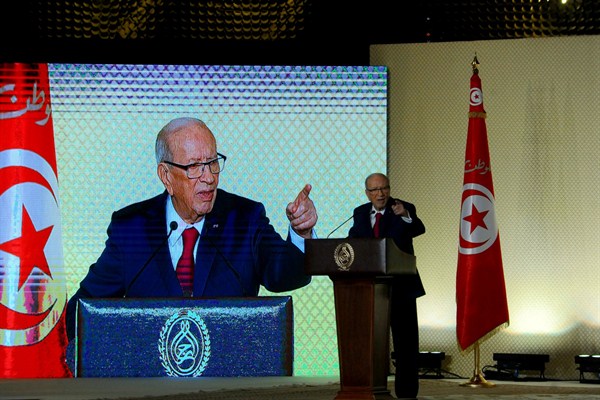Echoing the symbolic spark of the 2011 uprising, a Tunisian vendor set himself on fire on Wednesday in the town of Tebourba outside Tunis, after police had instructed him to close his fruit stand. Riots ensued, and a crowd of young men clashed with police as the vendor was hospitalized for treatment.
The incident took place at a tense moment in Tunisia’s stumbling democratic transition, which entered its seventh year in January. Protests over economic marginalization have multiplied across the south of the country, and on Tuesday, Chafik Sarsar, the head of the country’s electoral commission, resigned—refusing, he said, to be a “witness to fraud.” His resignation casts a shadow over municipal elections scheduled for December, and is seen by many Tunisians as the latest thorn in the country’s attempts to consolidate democracy.
Tunisia’s 90-year-old president, Beji Caid Essebsi, sought to dispel national anxieties in a televised address on Wednesday. But Essebsi is widely seen as a relic of the former regime, given that he served in the administrations of Zine el Abidine Ben Ali, the dictator who was ousted in 2011, and his predecessor, Habib Bourguiba. His words seemed only to deepen public frustration over a flailing economy and rampant corruption.

